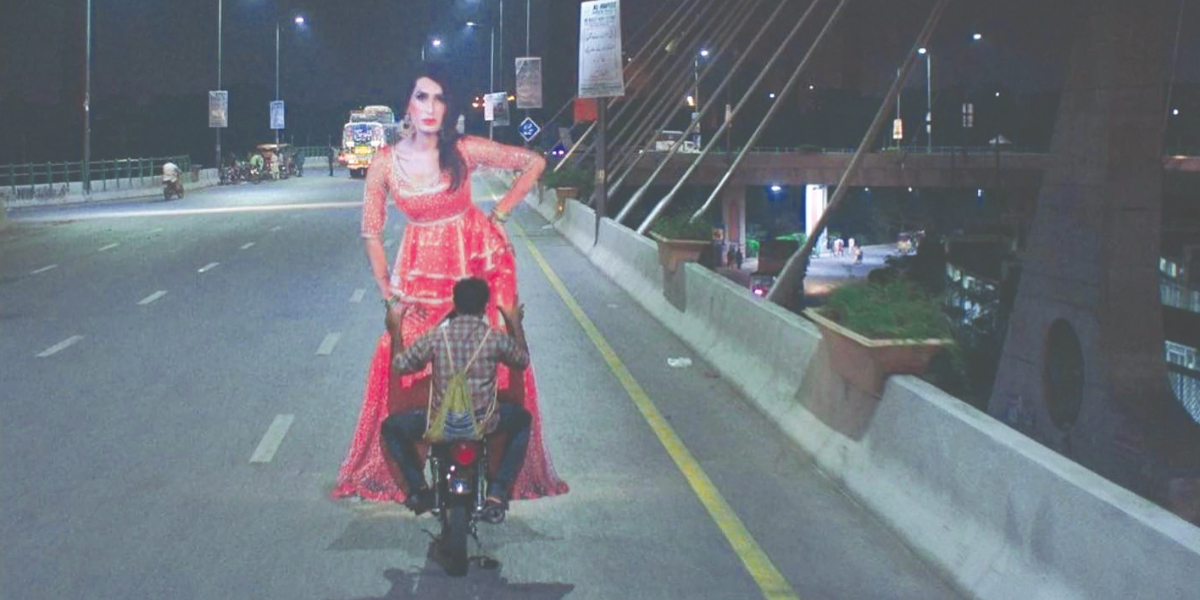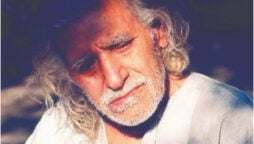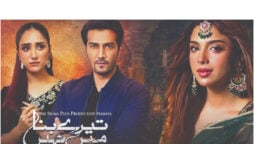
The movie shook the very core of Pakistan’s value system with its much-tabooed portrayal of a man falling in love with a transgender
Last week, one of the biggest annual film festivals, Festival de Cannes 2022, was organised in Cannes, France. From red carpet moments to style statements, from movies that made it to the festival to the stars spotted at the gala – Cannes Film Festival dominated our social media feeds.
Of course, we (Pakistanis) were clueless that one of our entertainment endeavors, Joyland, was about to be recognized, appreciated, and celebrated at the festival. The nation only came to know about it when Sarwat Gillani’s glimpse was caught on the Cannes red carpet, bringing on some desi glam by adorning a saree and flaunting elegant ensembles designed by Pakistani designers.
The presence of team Joyland was a pleasant surprise for the masses back home, for nobody knew anything about the movie. It raised many questions, such as, what was the storyline of Joyland? Who directed it? How was it selected at Cannes? Etc.
Another perfectly wonderful surprise was the dazzling win of the film on the red carpet. It bagged the jury prize in the ‘Un Certain’ Regard category that lauds projects with ‘non-traditional’ content. It also brought home the Prix Queer Palm, an independently sponsored prize for the best LGBT, queer or feminist-themed film at the Cannes Film Festival.
And thus, Joyland has been immensely cheered by the public. Its international success is spreading joy across Pakistan, especially during the days when the country is struck by the worst of the political turmoil.
A daring love story that received a standing ovation
The credit for Joyland’s historic win goes to the young and accomplished Saim Sadiq, a 31-year-old Pakistani filmmaker who previously directed a short film ‘Darling’ and achieved an award at the 76th Venice Film Festival.
The question is: What was the plot of Joyland?
In essence, the film shook the core of the Islamic and cultural value system followed in Pakistan with its much-tabooed portrayal of a man, Haider- essayed by Ali Junejo- falling in love with a transgender person. Set in a modern yet patriarchal Lahore, the plot weaves a tale of a married man facing pressure to produce a son. Birthing boys is considered crucial in most Pakistani families, while daughters still aren’t embraced whole-heartedly. But our hero in Joyland finally cast caution to the winds, brings a sexual revolution, and secretly joins an erotic dance theater, ‘Joyland’ to explore his sexuality. This action changes his life as he is swayed by the troupe’s director, a beautiful transwoman named Biba- essayed by Alina Khan.
From here begins their journey of discovering forbidden love, enjoying intimacy much tabooed, marking their acceptance in the society while questioning its hypocritical norms. The movie gives the audience a peep into the transgender culture that thrives in the country.
To screen or not to screen?
Starring Ali Junejo, Alina Khan, Rasti Farooq, Sarwat Gilani, Sohail Sameer, Salman Peerzada, and Sania Saeed, Joyland might never see the light of the day in Pakistan. This movie is creating headlines globally for being progressive and nipping ‘misogyny’ in the bud. However, various religious groups in the country might not accept its queer and non-traditional storyline. They would demand its immediate ban. Joyland might have the same fate as Sarmat Khoosat’s ‘Zindagi Tamasha’.
For the world, Pakistan would become a country that fails to celebrate its art; and appreciate its entertainment industry. Little do they know that Pakistan is among the first nations to recognize transgender individuals and grant them their much-needed rights?
In 2009, the Supreme Court of Pakistan ruled that transgender people will get their national identity cards as ‘third sex’. In 2010, it further ordered full recognition of the transgender community, including free medical and educational facilities with job quotas in every government department. However, the law that recognizes them as equal citizens with penalties for discrimination and hate crimes is still pending approval in the parliament. Although the law is ready to give them full rights, it is the society that is still dubious and refuses to accept transgender people as respectable citizens. This challenge makes the release of Joyland in Pakistan a wishful dream that might never come true.
Nevertheless, there’s still hope; as Saim Sadiq told the press when he received the standing ovation at Cannes, ‘Everything felt more emotional because it felt like the start of something.’ We are hopeful that one day films like Darling and Joyland will release in Pakistan and that our country will become a safe haven for one of the most vulnerable communities across the globe – the true dwellers of a real Joyland.
Catch all the Breaking News Event and Latest News Updates on The BOL News
Download The BOL News App to get the Daily News Update & Live News.












 Read the complete story text.
Read the complete story text. Listen to audio of the story.
Listen to audio of the story.